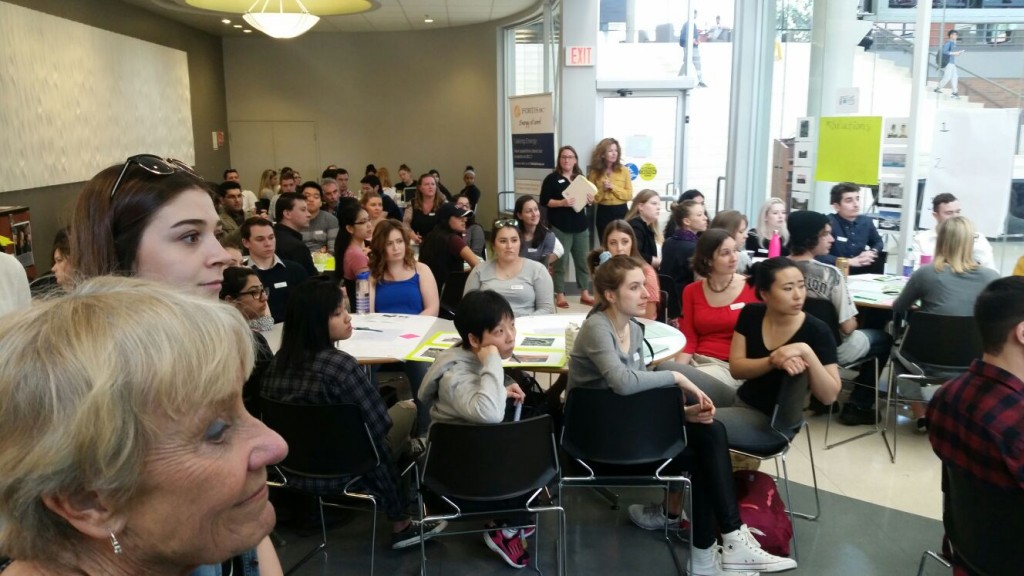
Two topics on agenda: solutions, and the future
By Jamal Al-Bayaa, Staff Writer
Through the joint efforts of the DCBA, Douglas College, and a commitment of $15,000 from their partner FortisBC, serious conversations about climate change and energy usage were able to take place at Douglas on April 1.
Since it was primarily FortisBC’s event, their team addressed eight topics that they deemed important or good for discussion, and students were given a month to personalize them, internalize them, and then facilitate conversations around them in a variety of ways. The topics were conservation, innovation, education, empowerment, demand-side-management, climate change, and efficiencies. These topics inspired talks on forestry, overfishing, animal agriculture, consumer behaviour, and more.
An underlying theme connected all these conversations, and it was presented in the form of a question: “How can we make sustainable living easier?”
Student leaders let the community answer that one. It was their job to facilitate, encourage, and record the discussions, not enter into the decision and brainstorming process for them—although brainstorming with them was always encouraged.
Siobhan Ashe’s “Sociology of Environment” class led a series of dialogues, which took place in Douglas College’s fishbowl.
As Judy Darcy MLA for New-West said: “There’s a lot of places that you could be on this beautiful sunny day… and you’re here talking about action… I think it’s so exciting.”
In the weeks leading up to the dialogue, students were reminded that climate change is not a drastically negative concept that requires grim discussions of death and doom. They were encouraged to keep the conversation equally positive, and encouraged to view solutions as the key to good dialogue, not problems.
In attendance was Liberal MP Dan Ruimy, who insisted: “I’m not a politician, although they tell me I am.” Ruimy shared a bit about what being a first-time politician is like, and he discussed what it’s like not being a millennial, while the world is going through this cultural shift and transitioning into a more holistic and conscious community.
Ruimy expressed to the dialogue tables that there wasn’t any emphasis on recycling when he and his generation were growing up, “[and as a result], I throw everything away. My staff actually started teaching me—the younger people started teaching me, how do we stop that, how do we eliminate that? I was surprised to see our garbage levels go down to almost nothing. [Now] almost everything is being recycled.”
Those who participated showed impressive conviction with which they worked on their dialogues, but also with the research posters that were on display outside, and the quality of the questions that they asked in the panel discussion featuring a number of Vancouver’s energy and climate change experts.
Hazel Postma, Associate Vice-President of Douglas College, said that the purpose of the event was to fulfill Douglas College’s strategic goal of providing “experiential learning” for students. Jennifer Henderson, Postma, and all the staff involved expressed their satisfaction with the dialogue, which provided not only experiential learning, but also networking opportunities and some insightful conversations for the students.


